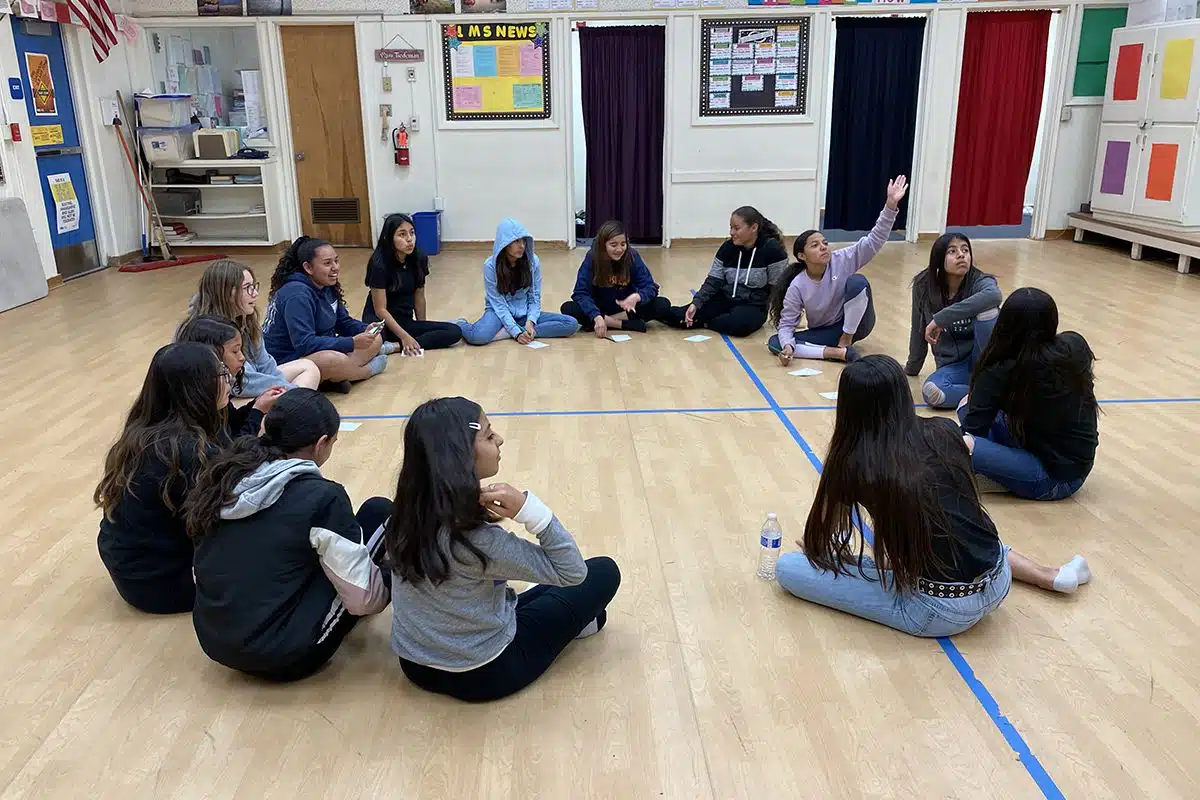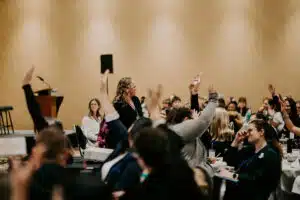
Gratitude Builds Resilience. Growth Mindset Builds Grit.
Let’s be honest — our classrooms, our schools, our world — they’re moving faster than the human heart can process.
If you watched the short video below of students who are participating in kid-grit from Think Together, an out of school time program that supports over 200,000 students from San Diego to San Francisco, CA, you’d see the following styles of learning and character traits in a matter of only two minutes: sharing ideas, listening, critical and analytical thinking, empathy, collaboration, and even laughter. Let’s unpack this together!
You want this! A reflective practice is ‘learning through and from experience towards gaining new insights of self and practice’ (Finlay, 2008). Reflection is a systematic reviewing process for all educators which allows us to link one experience to the next, making sure your students make progress. Using reflection as an intentional practice is not only great for students, but also imperative for educators because it show us how much a student is a) paying attention b) if they are able to retain the information and c) provides an opportunity for the student to pause to articulate their learning. In plainer terms, this shows us if the students get it! You will know if your students are grasping concepts in any subject by using a strong reflection question. As a facilitator of learning, we need to know in real time how students are receiving the information we are sharing. Whether you are in a traditional classroom setting or in a non-profit youth serving environment– recapping, reflecting, and revisiting content is useful for everyone!
Further, there are even reflections questions designed for the educator to evaluate your own facilitation practice. In the same way want to teach students to become critical thinkers about their learning, it is equally as important for you to think about your practice of teaching. Good reflection questions can help you evaluate everything from teaching bias’s, teaching processes, classroom culture and designing goals and objectives.
Lastly, an educator can benefit by using reflection in their practice because it can build your confidence in any learning environment. Hint, you are constantly assessing, shifting, and trying out new ideas by building your practice with these five simple steps:
Reflective educators help students understand that the students will now look back rather than move forward. They will take a break from what they have been doing (pause), step away from their work, and ask themselves, “What have I (or we) learned from doing this activity?” (Costa and Kallick, 2008). This also helps the student create context for why they are learning it. If a student doesn’t know why the topic is important to their learning, and you can’t explain it to them, it probably isn’t relevant any way. We need to teach students strategies to derive rich meaning from their experiences. We want them to think about their own ‘thinking’. Reflection involves linking a current experience to previous learnings (a process called scaffolding). Reflection also involves drawing forth cognitive and emotional information from several sources: visual, auditory, kinesthetic, and tactile.

Photo: kid-grit Middle Schoolers from Lennox, CA, 2019
Discussions
Having students sit in groups and having active and reflective discussions about learning can be a wonderful way to engage them, rather than only using a pencil and paper or writing on a device. You can have students discuss, and then write it out, in that order, which make it easier for students to come up with ideas and connect the learning to the question. This requires from the student: problem solving, creating mental maps, exploration, and sharing ideas. Reflection is also enhanced when we ponder our learning with others. Students can draw out ideas from each other. This process is much like any college study group or a real-world job. Great practice!
Interviews
A playful and interactive way to engage students by having them interview each other or adults depending on the project.
Questioning
Well-designed questions—supported by a classroom/program atmosphere grounded in trust—will invite students to reveal their insights, understandings, and applications of their learnings.
Modeling Reflection
Share your own experience and why/how reflection has supported you personally or professionally. Sharing your own experiences creates social equity in the classroom/program. This can be a wonderful tool for helping students feel more at ease and comfortable with you in the classroom/program.
Developmental Issues
When using reflection questions, you will also be able to notice how students are digesting the information and examine if they have developmental issues or a learning disability. When you learn this about a student you can begin to approach her/his learning from a different approach.
Developmental Issues
When using reflection questions, you will also be able to notice how students are digesting the information and examine if they have developmental issues or a learning disability. When you learn this about a student you can begin to approach her/his learning from a different approach.
It wouldn’t be a kid-grit blog if we didn’t mention social and emotional learning (SEL)! Just as in the same way we use reflection processes in academic learning, we need to apply the same creative questions to any SEL activity or lesson. We are big on having students being able to articulate how and why the FEEL something, how and why they have FEELINGS and how and why they RESPOND they way they do. If you have been in our trainings you have heard us say “If you can name it, you can claim it!”. We didn’t create that saying but we use all the time and know it to be true (even for adults, this holds true as well). When we are in understanding and able to process how we feel, we can then begin to choose how we will respond. This is especially true for anyone coming from a traumatic background.
SEL is powerful and necessary, ensuring that students have a moment to reflect, processes and feel what they feel is vital to their development as creative, contributing and communicative humans.
If you value it, this blog, kindly share it!
Resources:

Let’s be honest — our classrooms, our schools, our world — they’re moving faster than the human heart can process.

Change is life’s greatest teacher. Discover how resilience, reflection and adaptability can guide us through every season of growth.

If you’ve ever joined a kid-grit training, you’ve heard us proudly say that our work supports people ages 5 to 105.